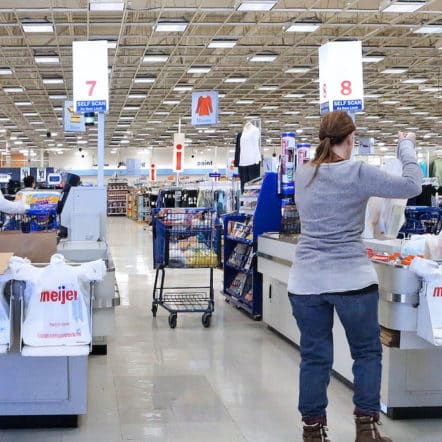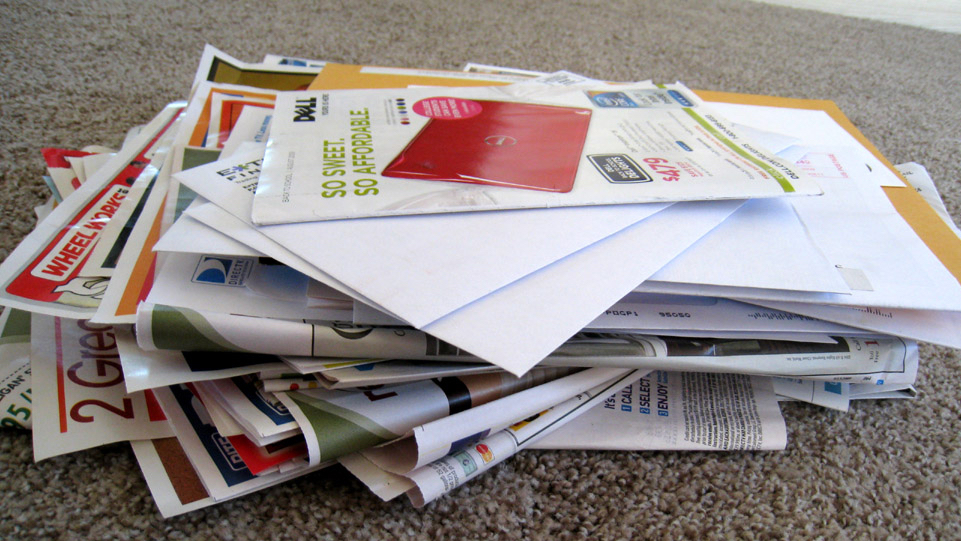In the 1960s, Milton Friedman reportedly visited a construction site in a foreign country. To his surprise, the canal builders used no heavy machinery and instead armed thousands of men with shovels. He questioned the bureaucrat about this odd choice and the bureaucrat responded that it was a jobs program. “Oh, I thought you were trying to build a canal,” Friedman said. “If it’s jobs you want, then you should give these workers spoons, not shovels.”
Friedman’s absurd proposal illustrates the absurdity of make-work bias—the belief that conserving labor makes us poorer. Make-work bias was particularly popular during the Industrial Revolution, when legions of new machines upended the old way of doing things. No one was more famously upset than the textile workers of the early 19th century—Luddites—who railed against the automatic loom, the “job-killing” machines of their day.
Modern Day Luddites
We in the Information Age have our own Luddites. Among their ranks are Las Vegas culinary workers trying to hold back AI servers and bartenders and teamsters opposing self-driving vehicles and delivery robots. Luddites and their sympathizers heap a particularly large amount of criticism on self-checkouts, probably because their ubiquity makes them an obvious target.
Their apprehension is understandable. The proliferation of self-checkouts touches our daily lives so completely that it’s hard to imagine cashiers not losing their jobs or suffering smaller paychecks. Self-checkouts threaten cashiers as surely as excavators threatened shovel manufacturers. It is no surprise that protests erupted after a French supermarket used self-checkouts to get around labor laws or that the Oregon AFL-CIO backed a petition which limits the number of self-checkouts to two per store. Every supplier hates competition.
Having your livelihood upended is a terrible thing but holding society back for one’s own benefit is far worse. Neo-Luddites miss the point of economic activity. If economic progress came from just any kind of work, then utopia would come with banning all labor-saving devices. Walking instead of bikes and cars. Chalk instead of computers. Spoons instead of shovels. It would be a very busy world, and a very poor one.
What’s the Point?
Work is not the goal of economic activity. The goal is human flourishing. The goal is to discover ways to utilize resources in the best possible manner, finding the right tool, or bundle of tools, for the right job. That is how societies get wealthier and that is what markets do best.
Products represent bundles of consumer desires. Even the simple hot dog vendor is not simple at all and might try to attract customers with new toppings or a different location or a kosher option. Each product is a bundle of considerations that producers constantly tweak. Entrepreneurs try new approaches and consumers either punish them with losses or reward them with profits. More effective strategies displace less effective strategies. Economist Joseph Schumpeter coined the term “creative destruction” to describe this churn of good ideas proliferating and bad ones, new and old, disappearing.
Creative destruction is the process of progress. Successful experiments reward the businesses intrepid and clever enough to try them. Sometimes customers find a new bundle of price and product untenable and the business suffers.
Creative destruction is messy and goes against our instinctive desires for predictable and deliberate progress. But it is necessary because no one knows beforehand which are the good bundles and which are the bad bundles. No one even knows all the different bundles that can exist. Progress requires experimentation and people must be free to reject and free to accept.
We should not accept displaced workers as a reason to hold back change. Treating cashiers as make-work jobs transforms companies into sources of charity, a role better left to nonprofits and governments. Markets are good at discovering efficiency, not running soup kitchens.
Discovering new ways to make the most of what we have is the core competency of the for-profit sector and that’s what we should task them with. We should not dig with spoons any more than we should eat soup with shovels. Prosperity requires the right tool for the right job.
Consumer Choice Derived from Manifold Considerations
A common criticism of self-checkouts is that we, the customers, do unpaid work. It’s a rhetorically clever argument because it brings up images of slavery and forced labor. It sounds like self-checkouts turn us into suckers. We should get a discount, they say, when we use one.
A puzzle lies at the heart of this criticism, one that robs critics of their not-so-subtle accusations of indentured servitude. We choose to patronize a store. We choose to use a self-checkout. We know many people prefer them because companies keep installing them (they would be a wasted expense otherwise). We are not slaves so why do we choose to work “for free”?
Manifold considerations factor into consumer choice and price is just one consideration. Location, customer service, ease of purchase, product variety, product availability, product quality, aesthetics and other factors all play a role and the importance of each factor varies from person to person and time to time.
To illustrate, suppose grocery stores required shoppers to bring their own carts back from the parking lot. It would save the store money, possibly a lot of money, by not having to hire people to do that job. Like self-checkouts, companies could “make” customers do the work for free.
I’m familiar with one store that’s done exactly this. The parking lot is somewhat small so the store opted to not sacrifice any spots for cart returns, requiring customers to either carry groceries to their car or push their carts back to the store. Carts from inconsiderate customers sometimes litter the parking lot.
This store can “get away with” not having any cart returns because it’s adjacent to a high school and just off a major freeway. The parking lot is small because the land is valuable. The original builders surely knew this and (correctly) determined that people would be willing to trade one kind of convenience for another. The store’s been around for a while; this bundle seems to be a winner.
How You Get Paid for Using Self-Checkouts
If people work “for free” there must be a good reason. People must be getting something for the annoyance of so-called unpaid labor, as I occasionally suffer the annoyances of cart return in exchange for less driving.
The reality is that we do get paid for using self-checkouts: we get paid in time. Self-checkouts don’t need space for a cashier and many don’t even have a conveyor belt which is why two or three self-checkouts can fit in the same location as one conventional checkout. Assuming that a cashier isn’t two or three times faster as an average customer, you’re going to spend a lot less time waiting in line.
It gets better. Many grocery stores require you to choose a cashier line which means you can get stuck behind a particularly slow customer. (This is my great fear whenever I have to choose a line.) The density of self-checkouts often results in a queue: one line for multiple checkouts, enabling people to skip past patrons who happen to have a lot of coupons or need their ID checked.
Over many shopping trips, that can add up to a lot of minutes, even hours, that would otherwise be frustratingly spent in line. That’s why people choose to do “unpaid” labor: it’s far faster if we do it ourselves.
Waiting Is a Form of Labor
It’s important to remember that using a cashier doesn’t mean you don’t perform so-called unpaid labor. Waiting in line is its own form of labor. Fewer cashiers mean longer lines. Stores could employ enough cashiers to utilize every checkout lane but they don’t because customers aren’t willing to pay the higher prices that so many employees would necessitate.
When it comes to checkouts, customers would rather do some labor themselves, as surely as fast food customers accept busing their own tables: it’s the natural requirement of a low price. Self-checkouts let us choose how we secure low prices and some people prefer self-checkout labor (paying in effort to save time) to waiting-in-line labor (paying in time to save effort).
When voters weigh-in on an Oregon ballot measure this November to limit the number of self-checkouts to two, they might well do the bidding of Luddites who want to limit consumer options for their own benefit.
I can only hope that wiser heads prevail. Wiser heads recognize that political decisions tend to force a uniform vision of what is acceptable and what is not.
Options make markets great because we don’t all have to want the same thing. Yes, not all businesses have cashiers just like not all businesses have self-checkouts. Sometimes some choices are not viable due to the natural limits of the technology or the up-front expense. What these neo-Luddites want to do is to steal our options away from us, to artificially constrain choice, rob us of our time, and force society to dig canals with spoons.

David Youngberg
David Youngberg is an associate professor of economics at Montgomery College in Rockville, MD.
This article was originally published on FEE.org. Read the original article.








